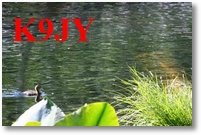Marketing Ham Radio
 One of the continuing challenges with the hobby of Ham Radio is adding licenses -- and active Amateurs -- to what we do here. Attracting members, if you will, is the continuing focus of all great groups.
One of the continuing challenges with the hobby of Ham Radio is adding licenses -- and active Amateurs -- to what we do here. Attracting members, if you will, is the continuing focus of all great groups.
Much of the past Amateur Radio focus on marketing has been:
- the continued discussion about what things in the hobby prevent people from entering the hobby (think of No Code)
- the need for "standards" for people entering the hobby (mostly because of the Citizen's Band debacle from quite long ago and some of the activity on current bands)
- Looking down on "appliance" operators compared to those that "build their own."
- the need for "young people" to come into the hobby.
- And others
While interesting to those of us in the hobby, none of those issues mean a thing to those outside of the hobby looking in to see what we do here.
Where's our focus?
What is lacking is focus on our potential customers. What we do now is focus internally on our different factions of the hobby, point to how great or poor that faction is and whine about what would be so much better if this or that changed or went away.
What's cool about our hobby
One of the great attractions to me when I first joined Amateur Radio was the great diversity within the hobby that would allow me not to get bored with what I was doing.
As most do, I first came into ham radio and simply chatted with other hams on the air, whether through Morse Code or through voice.
My first great love was chasing DX and confirming those 300+ "entities" out there. DXing required a certain set of skills in using the radio.
Then I got actively involved in a general purpose club of some 150 amateurs, working both as a member, then as a member of the board, then as an officer, and finally President of the club for two years. It was one of the most rewarding times of my life.
After DX came a whole effort to work Packet by running one of the first DX PacketCluster nodes in Wisconsin. I learned about packet, networking, radio signals over different terrain and how diverse the people in our hobby are when working in their little groups.
Then DX got boring and I started doing contesting. A whole new set of skills needed to be learned.
Then came multi-contesting. Another set of skills and team work needed to be figured out.
Then I became actively involved in RTTY and digital work, including contesting.
Now I'm doing a bit of DXpedition work and writing this blog. It's still part of the hobby of Amateur Radio.
What runs through all of those activities -- with tens more aspects of the hobby not even mentioned?
The chase, competition, team work, service to others, and traveling to other countries -- all while communicating to others in a way that, in spite of all of our efforts to explain, still creates wonder through the ether.
Ham radio can market to all sorts of people: builders (stations, radios, antennas), experimenters, code writers, communicators, people looking for minimalist challenges (QRP and 100-pound DXpeditions), people who love to travel, those devoted to public service and people who want to achieve awards and goals. And more.
Ham radio isn't about what to get rid of in our hobby to attract people. It's about all the great things our hobby has and marketing to people based upon what fulfills human needs for connection and achievement.
Scot, K9JY